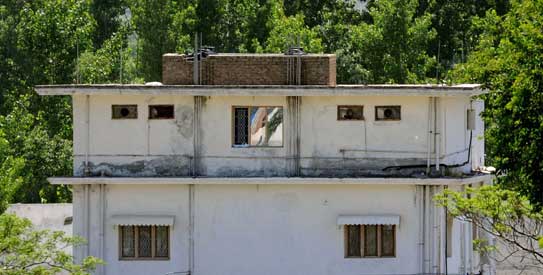
ISLAMABAD: A member of the high-level Pakistani Abbottabad commission tasked with detailing the May 2 incidents in Abbottabad that resulted in the killing of Osama bin Laden, has completed recording his findings, according to a BBC Urdu report published on Thursday.
The findings are based on statements from bin Laden’s family, his neighbours, and the government officials who entered the area after the raid, said the report.
Questioning the American position on the raid, the details contradict, and are different from, the version of events described by the US. The findings will also be the first official version of the events from the Pakistani side.
A major question raised in the report is the finding that only a single bullet-casing and bullet-mark was found from the room which was allegedly filled with more than half a dozen armed companions of the former al Qaeda chief.
The bullet mark was found on a wall in bin Laden’s bedroom, the same room where he was killed. The mark is so high on the wall that it appears as if the man firing bullet was on his knees. The commission’s experts have concluded that this bullet caused bin Laden’s death, and possibly hit the wall after tearing through a part of his skull, adds the BBC report.
Other than this, no other bullet-casing or bullet-marks were found from the compound. However, the commission’s members found more than a dozen Klashnikov rifles – some less than a yard away from the dead bodies, adds the report.
The report raises the question that why did bin Laden’s companions not fire a single bullet at the US Marines, because the American version of events states that not a single soldier was hit. Now if no soldier was hit, and not even a single shot had gone astray — which was proved by the absence of bullet casings and marks — then why did Osama’s companions not fire a single bullet, the commission findings inquire.












































Dear visitor, the comments section is undergoing an overhaul and will return soon.